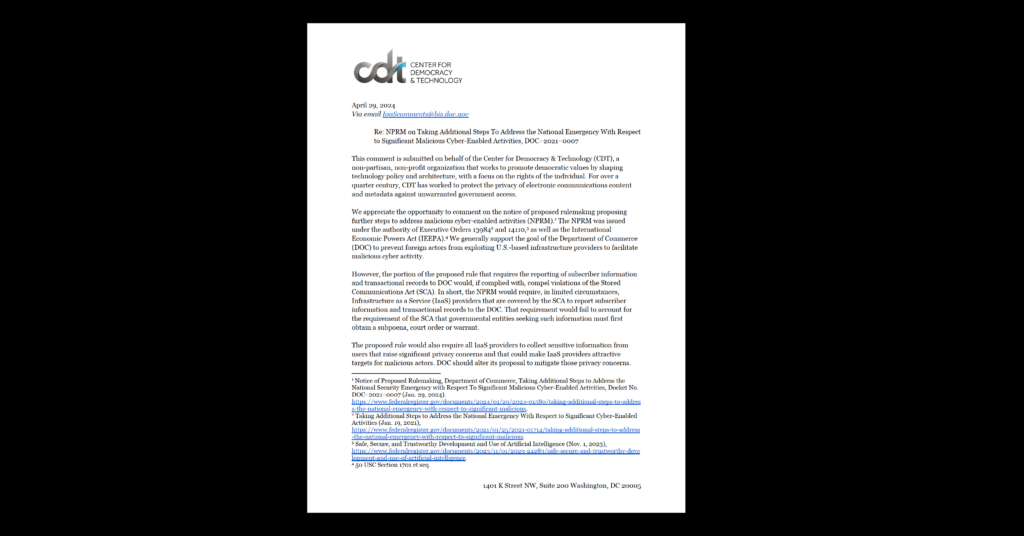European Policy, Privacy & Data
CDT Europe: Placing Human Rights at the Centre of New Tech Regulations
At a multi-stakeholder consultation, business, academia, civil society and state representatives discussed the gaps and ways forward in applying the United Nations (UN) Guiding Principles on Business and Human Rights (UNGPs) to regulate business conduct in the technology sector.
Co-organized with the Geneva Academy of International Humanitarian Law and Human Rights, the UN Human Rights B-Tech Project, and the Centre for Democracy & Technology’s Europe Office, the consultation allowed participants to explore how existing regulatory and legislative processes targeting technology companies align – or not – with the UNGPs.
‘An increasing number of States are elaborating policy frameworks at the national and multilateral level targeting the development and use of digital technologies. Here is where the OHCHR B-Tech Project is keen to add value by developing a guidance tool to inform policy makers on the policy and design choices when regulating technology company conduct while seeking to align such measures with the UNGPs. A balanced mix between mandatory and voluntary measures is crucial in the technology sector’ underlines Dr. Isabel Ebert, Adviser to the OHCHR B-Tech Project.
‘It is essential to facilitate spaces for stakeholder exchange, with a view to develop pathways for better implementation of the UNGPs in the technology sector. The UNGPs provide a critical reference framework that will help shape effective implementation of the due diligence obligations outlined in the EU’s Digital Services Act’ explains Asha Allen, Advocacy Director for Europe at the Centre of Democracy & Technology, Europe Office.
Participants also commented on a draft guidance tool for policy-makers, proposed by the B-Tech Project Team, on how to best align the UNGPs with regulatory efforts on technology company conduct.
A Timely Exercise
Digital technologies and technology companies can have a significant impact on the enjoyment of human rights. Therefore, the UNGPs – the key framework for guiding businesses’ respect for human rights – should be at the heart of any regulatory and policy frameworks concerning the design, development and deployment of digital technologies.
Some states and regional organizations are increasingly leaning towards adopting more mandatory measures, both in the general context of business and human rights and the specific context of the application of certain digital technologies – for instance, legislative measures to prevent and mitigate online harms, and legislative measures to regulate artificial intelligence technologies. Yet there are prominent gaps in aligning regulatory efforts with the UNGPs.
‘These discussions – by bringing all the relevant stakeholders around the table – allow not only to identify the gaps but also to ensure policy coherence by way of aligning the regulation of the tech sector with human rights and the UNGPs’ says Dr Ana Beduschi, Senior Research Fellow at the Geneva Academy.
This consultation is part of our project Disruptive Technologies and Rights-based Resilience – funded by the Geneva Science-Policy Interface – and carried out in partnership with the B-Tech Project.


